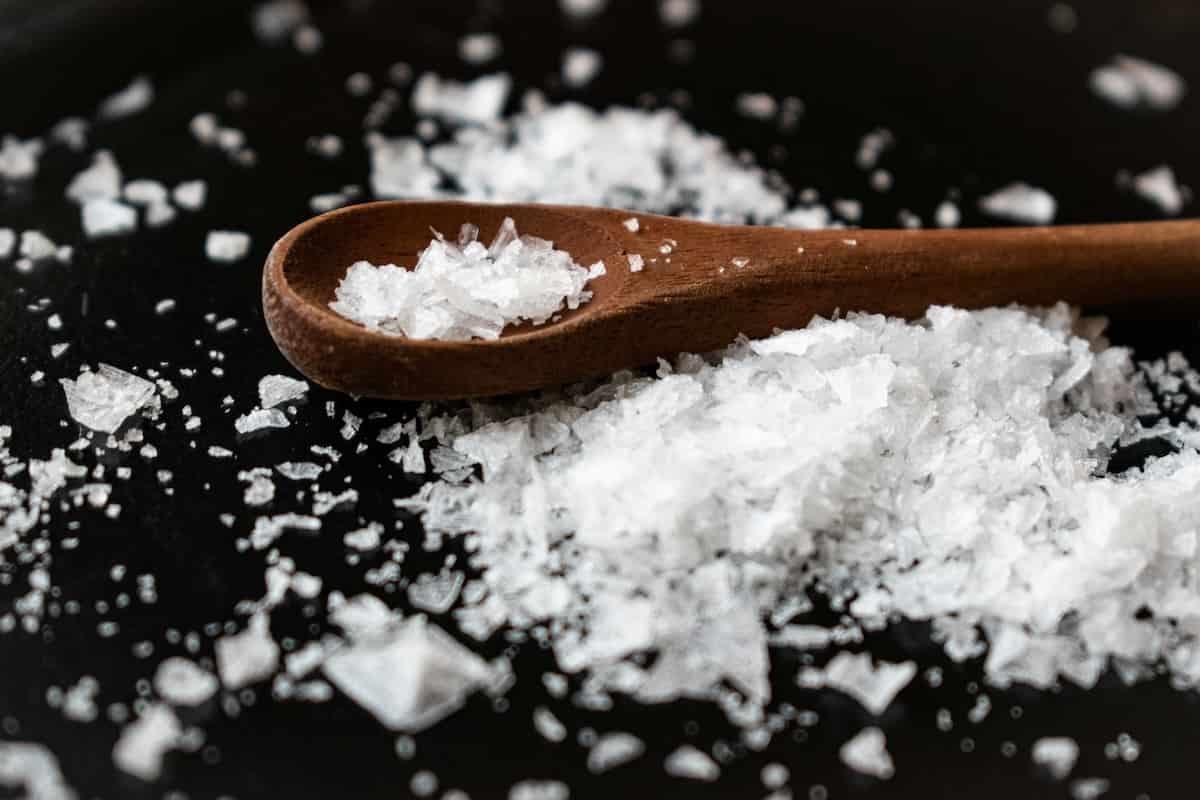Last update: January 22, 2025
5 minute read
Erythritol vs Stevia
Explore the differences between Erythritol and Stevia, their health benefits, and their best uses in our guide.

By Stephanie Wright, RN, BSN
Edited by Dr. Jacquie Leone, NMD, HN

Ever wonder which low-calorie sweetener to use in your coffee or when baking? Let's talk about erythritol and stevia. Both are popular sugar substitutes, but they have different qualities and uses. We'll explore how they're different and how they affect your health, and we’ll help you pick the right one for your sweetening needs.
Key takeaways
- Erythritol and Stevia offer a sweet taste without spiking blood sugar levels
- Personal taste preferences and cooking needs may affect your choice between erythritol and Stevia
- While generally considered safe, consuming erythritol and Stevia in moderation to avoid potential side effects is important
What are erythritol and stevia?
Erythritol is a type of sugar alcohol found in certain fruits and mushrooms. The cool thing is it has fewer calories. You can use it as a substitute for regular sugar in things like baked goods.
Stevia is another natural option with zero calories, and it comes from the leaves of the Stevia rebaudiana plant. You can find stevia in powder or liquid form, and it's a sugar-free way to sweeten your food.
How do they compare nutritionally?
When it comes to calories and carbs, they’re both lightweight compared to sugar. Here's the scoop:
- Erythritol: At 0.2 calories per gram, it's less sweet than sugar but still a contender.
- Stevia: Virtually calorie-free and may be several hundred times sweeter than sugar.
VitaRx Tip
Keep in mind that these two don't bring nutritional value. They're used in smaller amounts to add sweetness rather than for nutrition.
Will they affect my blood sugar?
No! Erythritol doesn't spike your blood sugar or insulin levels.
Some experts even think it might lower blood sugar by interfering with sugar absorption and muscles. Stevia doesn’t increase blood sugar either, which makes it a good option, especially for people dealing with diabetes.
Some studies are investigating whether stevia could reduce blood sugar levels as a side effect. But it’s not a definite yes yet; it’s more of a possibility.
Can I cook with erythritol and stevia?
Absolutely! Stevia and erythritol are great alternatives for sweetening coffee or making delicious cookies. Here are a few things to keep in mind:
- Stevia: It's super sweet, so use a little. It might have a bit of bitterness, kind of like licorice, so taste it as you add.
- Erythritol: It works well in most recipes, but be careful—it may get hard and grainy, which might not be great for all dishes.
Should I be worried about side effects?
Stevia and erythritol are usually good for your stomach, but there are a couple of things to keep in mind:
- Stevia: It's approved by the FDA, but be careful with Stevia products with other ingredients that might not agree with everyone's digestion.
- Erythritol: It's mostly okay, but eating too much could lead to some gastrointestinal troubles like diarrhea and upset stomach.
Which sweetener wins: erythritol or stevia?
Choosing between sweeteners is a bit like picking your favorite flavor. If you want sweetness without an aftertaste, go for erythritol.
If you like strong sweetness with a unique touch, try stevia. But be careful with mixed sweeteners, as stevia might come with other carbs that may affect your sugar levels.
Health made easy: your go-to resource for essential vitamins and supplements

Dos and don'ts of choosing between erythritol and stevia
Choosing between sugar alternatives doesn't need to be confusing. When deciding between erythritol and Stevia, consider what works best for you, just like when you're picking out headphones.
Look for quality, consider how it fits into your lifestyle, and what kind of sweetness you prefer. To make it easier, here's a simple dos and don'ts table to help you choose your sweetener.
Do’s
Do read labels carefully for any extra additives.
Do start with smaller amounts due to sweetness.
Do consider erythritol for cooking stability.
Do use stevia if cutting calories is a goal.
Don’ts
Don't go overboard to avoid digestive issues.
Don't ignore taste preferences and aftertastes.
Don't forget to account for sweetness levels.
Don't use whole-leaf or crude stevia extracts.
Advantages and disadvantages of erythritol and stevia
Picking a sugar alternative may be tricky, but many health-conscious people prefer erythritol and stevia. These options differ from regular sweeteners and offer a smarter way to satisfy your sweet tooth. Here, you'll find the basic details to help you choose between erythritol and stevia, making it simpler to decide which one works best for you.
Frequently asked questions (FAQ)
Here are some of the most frequently asked questions about erythritol and stevia.
Final thoughts
Deciding between erythritol and Stevia is more than just about taste—it's about making healthier choices. Each sweetener has its own features and benefits, and the one you pick depends on what you like and your health goals.
Whether you want to control your weight, manage blood sugar, or enjoy sweets without the extra calories, these sugar substitutes could be a good choice. Stay informed, pay attention to how your body reacts, and remember, you may have sweetness when you make smart choices.
Sources and references
Author

Stephanie Wright
Stephanie brings over 13 years of diverse nursing experience to the table, having honed her expertise in critical care, mental health, and utilization management. Her journey as a registered nurse across these various healthcare sectors underscores her adaptability and deep commitment to patient care.
Fact checker

Dr. Jacquie Leone
Dr. Leone holds a BA in Psychology, a Doctorate in Naturopathic Medicine, and board certification in holistic nutrition. In addition to practicing medicine, Dr. Leone has developed and currently teaches science and nutrition courses for a nationally accredited institution. She specializes in chronic illness, gastrointestinal dysregulation, inflammatory conditions, and mental health. Her unique approach combines the wisdom of Eastern medicine with the technology and science of Western medicine, offering an integrative approach heavily focused on functional medicine.
At VitaRx, we're not just passionate about our work — we take immense pride in it. Our dedicated team of writers diligently follows strict editorial standards, ensuring that every piece of content we publish is accurate, current, and highly valuable. We don't just strive for quality; we aim for excellence.
Related posts
While you're at it, here are some other relevant articles you might be interested in.

Get your personalized vitamin recommendations in less than
5 minutes.
Get your personalized vitamin recommendations in less than
5 minutes.






